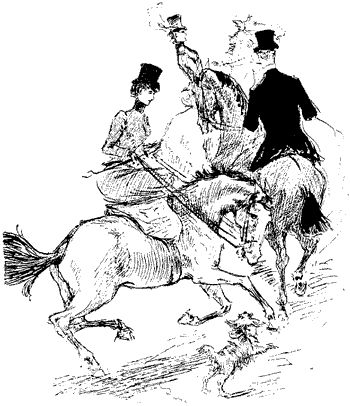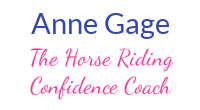I recently read a post in a Facebook group explaining how to use a one rein stop. I’ll confess right here, right now that I have never used a one rein stop. And I don’t recommend using it.
According to the person who posted the information, you have to teach your horse how to do the one rein stop so that it will work (without your horse falling down) if your horse bolts. If you’re not familiar with the one rein stop, there are lots of videos of it on YouTube.
Basically, you use one rein to pull the horse’s head around to your knee and hold it there. You’re also supposed to use your leg to disengage the hindquarter. And, you're supposed to do this while your horse is running off at full speed as she bolts.

I have 3 problems with the one rein stop.
Problem #1: The one rein stop does not address the reason for the horse's behaviour.
Problem #2: The one rein stop works by throwing the horse off balance so that he physically can't keep running. The horse can trip, stumble and fall down causing injury to the horse and/or rider.
Problem #3: The one rein stop does not help a horse learn self control in unfamiliar situations. It does nothing to help him feel calm, confident and connected with you.
This question needs to be asked … What's the reason the horse is bolting in the first place?
Running away from perceived danger or pain is the horse's natural, innate behaviour. Typically, a frightened horse will only run a short distance - to put space between himself and the perceived danger - before slowing down and stopping. Horses want to conserve their energy so they have enough to run away from the next potential danger. That’s how they survive.
Running away from perceived danger or from pain is the horse's natural behaviour. Punishment doesn't change that.
You can prevent the bolt from happening in the first place if you:
- are aware of your horse's level of stress
- ride with contact to you
- are aware of your horse's bend
Recognizing when your horse is starting to feel tense (through his posture, body language and focus) gives you the opportunity to reduce his stress before it builds and he explodes in some way. (eg. bolting, bucking or rearing) You might dismount and do some ground work so that neither of you gets overwhelmed.
With contact on the reins, you can apply half halts to slow him down at the first sign of an increase in his rhythm.
With awareness for his bend you can work with the bend to ride him into a circle, control where he is going and slow him down. This way, you are both balanced and there is less risk of your horse tripping or falling down.
It's human nature to want to be in control. It's our nature to want to stop behaviour we don't like. The one rein stop does work in many instances. If it didn't, it wouldn't be so popular. But, just because it works doesn't make it the best option. But, it can also go terribly wrong.
Prepare yourself to handle a galloping horse. If you can ride a gallop for a short while, you'll stay with a horse if he bolts.
Practice riding your horse in a controlled hand gallop and gallop. If he ever does run off with you on board, you’ll be able to stay balanced and calmly ride the gallop. You'll be able to bring him back under control instead of increasing his stress by panicking and pulling on the reins.
He'll soon want to slow down himself. You won't be bracing against each other. You'll be able to safely and calmly direct him onto a balanced circle.
If your horse bolts frequently, it’s most likely caused by a chronically high level of tension caused by fear, confusion or physical pain. You need to figure out what’s the cause and eliminate it. If chronic tension is the reason, work with a trainer who will show you how to help your horse release that tension. Pain can be a cause of chronic tension. Investigate any possible causes of pain - dental, chiropractic, muscle, joint, saddle fit, etc.
If pain is behind the behaviour, once the pain is resolved, the behaviour usually stops on it’s own. However, in some case additional training may be required to completely eliminate the behaviour.
In my view, prevention always trumps reaction. Do the work on yourself and your horse that to eliminate the root cause of unwanted behaviour and you’ll never need to use a technique like the one rein stop.
Are you ready to enjoy riding and have the partnership with your horse you’ve been dreaming of?
There are several ways we can work together:
- in person through private, small group lessons or clinics at your location
- virtual coaching using video and phone
- confidence boosting sessions by phone
If you’re ready to be calm, confident and connected with your horse then let’s jump on a call. In this free 20 minute call (phone or Skype), we’ll take a look at where you and your horse are right now and where you would like to be. Then we’ll talk about the best way to get you there.
If you’re ready to be calm, confident and connected with your horse then let’s jump on a call. In this free 20 minute call (phone or Skype), we’ll take a look at where you and your horse are right now and where you would like to be. Then we’ll talk about the best way to get you there.
Click the button to apply for your session today.


